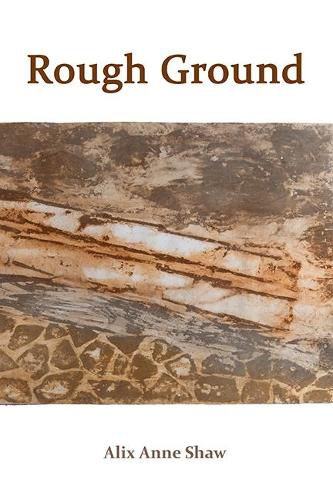Readings Newsletter
Become a Readings Member to make your shopping experience even easier.
Sign in or sign up for free!
You’re not far away from qualifying for FREE standard shipping within Australia
You’ve qualified for FREE standard shipping within Australia
The cart is loading…






Rough Ground is a translation of Ludwig Wittgenstein’s Tractatus Logico-Philosophicus from philosophical treatise to poetic text. In this work, Wittgenstein argues that language sets the limits of what can be said and thought meaningfully. He famously concludes that that which we cannot speak about, we must pass over in silence. Such topics (as Wittgenstein himself noted) include much of human activity that does not have a basis in objects, including philosophy and poetry. Clearly, as a poet, I do not share his view. The work incorporates many different methods of literal and semantic translation. Although the format of the Tractatus–long lines in short sections–lends itself well to poetic form, the language and syntax do not. Wittgenstein’s text is notoriously abstract and austere. In writing my own text, I began by using simple substitutions of a concrete noun for an abstract one; as the work progressed, I was forced to reinvent my method in each section. The result of these manipulations is a text in which Wittgenstein’s concepts are discernible, but in which there is more and more slippage between his language and my own. This slippage, of course, underscores the weaknesses in Wittgenstein’s own analysis of language, highlighting the ways that poetry creates its own reality–literally makes its own sense. As I worked, the text took on a loose narrative, involving a main character who experiences the trauma of atomic warfare. The result is the loss of language through which her experience can be understood and expressed. In recent years, there has been a resurgence of interest in Wittgenstein’s work, a phenomenon I connect to the linguistic challenges we face in our present historical moment. Arguably, the very nature of language has changed, and continues to change, in the wake of terrorism and the simultaneous reduction of reflected human experience to sound bytes. How can language continue to function in the wake of actions such as beheadings broadcast on the Internet? We must all ask how we can speak about such events. We must also learn to communicate complexly in the aftermath. Rough Ground explores these questions and dilemmas through the dual modes of philosophical thought and poetic logic, as well as through the gaps between the two. In doing so, it not only deals with the inevitable falling-short of language, but also suggests we may can invent forms of linguistic signification that accommodate our present need. For me, poetry is the space in which such invention–a wild proliferation of meaning–can take place.
$9.00 standard shipping within Australia
FREE standard shipping within Australia for orders over $100.00
Express & International shipping calculated at checkout
Rough Ground is a translation of Ludwig Wittgenstein’s Tractatus Logico-Philosophicus from philosophical treatise to poetic text. In this work, Wittgenstein argues that language sets the limits of what can be said and thought meaningfully. He famously concludes that that which we cannot speak about, we must pass over in silence. Such topics (as Wittgenstein himself noted) include much of human activity that does not have a basis in objects, including philosophy and poetry. Clearly, as a poet, I do not share his view. The work incorporates many different methods of literal and semantic translation. Although the format of the Tractatus–long lines in short sections–lends itself well to poetic form, the language and syntax do not. Wittgenstein’s text is notoriously abstract and austere. In writing my own text, I began by using simple substitutions of a concrete noun for an abstract one; as the work progressed, I was forced to reinvent my method in each section. The result of these manipulations is a text in which Wittgenstein’s concepts are discernible, but in which there is more and more slippage between his language and my own. This slippage, of course, underscores the weaknesses in Wittgenstein’s own analysis of language, highlighting the ways that poetry creates its own reality–literally makes its own sense. As I worked, the text took on a loose narrative, involving a main character who experiences the trauma of atomic warfare. The result is the loss of language through which her experience can be understood and expressed. In recent years, there has been a resurgence of interest in Wittgenstein’s work, a phenomenon I connect to the linguistic challenges we face in our present historical moment. Arguably, the very nature of language has changed, and continues to change, in the wake of terrorism and the simultaneous reduction of reflected human experience to sound bytes. How can language continue to function in the wake of actions such as beheadings broadcast on the Internet? We must all ask how we can speak about such events. We must also learn to communicate complexly in the aftermath. Rough Ground explores these questions and dilemmas through the dual modes of philosophical thought and poetic logic, as well as through the gaps between the two. In doing so, it not only deals with the inevitable falling-short of language, but also suggests we may can invent forms of linguistic signification that accommodate our present need. For me, poetry is the space in which such invention–a wild proliferation of meaning–can take place.